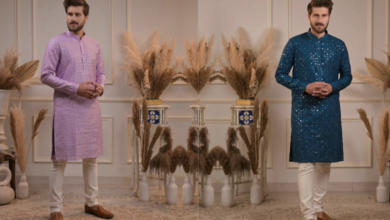Choosing Sustainability: Why Organic Hemp Fabric is the Future of Eco-Friendly Fashion

Sustainability has become a critical consideration in every aspect of our lives, including the clothes we wear. As consumers become increasingly aware of the environmental and social impacts of their purchases, the fashion industry is undergoing a transformation towards more sustainable practices.
In this shift, organic hemp fabric has emerged as a frontrunner, offering a host of benefits that position it as the future of eco-friendly fashion. In this article, we will explore the reasons behind the rise of organic hemp fabric and why it is poised to revolutionize the fashion industry.
The Environmental Benefits of Organic Hemp
Organic hemp fabric is derived from the fibers of the hemp plant, Cannabis sativa, which is cultivated specifically for industrial use. Unlike conventional cotton, which requires extensive water irrigation and chemical pesticides, hemp grows prolifically with minimal water and no synthetic inputs. Hemp plants are naturally resistant to pests and diseases, reducing the need for harmful chemicals and making them ideal for organic cultivation.
- Organic hemp cultivation requires minimal water and no synthetic pesticides, making it a sustainable alternative to conventional cotton.
- Hemp plants help replenish nutrients in the soil and prevent erosion, contributing to soil health and biodiversity conservation.
Furthermore, hemp cultivation replenishes nutrients in the soil and helps prevent erosion, making it a regenerative and sustainable crop. By choosing organic hemp fabric over conventional cotton or synthetic fibers, consumers can significantly reduce their carbon footprint and contribute to environmental conservation efforts.
Durability and Versatility
One of the key attributes of organic hemp fabric is its exceptional durability. Hemp fibers are known for their strength and resilience, making them ideal for clothing and textiles that withstand wear and tear. Garments made from organic hemp fabric are more durable than those made from conventional cotton or synthetic materials, ensuring longevity and reducing the need for frequent replacements.
- Hemp fibers are exceptionally strong and resilient, making garments made from organic hemp fabric more durable than those made from conventional cotton or synthetic materials.
- Organic hemp fabric can be used for a wide range of products, including clothing, accessories, home textiles, and even building materials, offering versatility in design and application.
Additionally, organic hemp fabric is highly versatile and can be used for a wide range of products, including clothing, accessories, home textiles, and even building materials. From lightweight summer dresses to sturdy denim jeans, hemp fabric offers unparalleled comfort and performance without sacrificing style or functionality.
Eco-Friendly Processing
In addition to sustainable cultivation practices, organic hemp fabric is typically processed using eco-friendly methods that minimize waste and pollution. Unlike conventional textile processing, which often involves harsh chemicals and excessive water usage, hemp processing can be done using mechanical means or eco-friendly solvents.
- Organic hemp fabric is typically processed using mechanical means or eco-friendly solvents, minimizing waste and pollution compared to conventional textile processing methods.
- Hemp fabric is naturally resistant to mold, mildew, and UV radiation, reducing the need for additional chemical treatments and making it safer and healthier for the wearer.
Furthermore, hemp fabric is naturally resistant to mold, mildew, and UV radiation, reducing the need for additional chemical treatments to enhance durability or performance. This means that garments made from organic hemp fabric are not only better for the environment but also safer and healthier for the wearer, reducing exposure to harmful toxins and allergens commonly found in conventional textiles.
Embracing Innovation in Fashion
As consumer demand for sustainable fashion grows, designers and brands are increasingly turning to organic hemp fabric as a viable alternative to conventional materials. From high-end Eco-Friendly Fashion labels to independent designers, organic hemp is gaining traction across the industry as a symbol of eco-consciousness and innovation.
- Designers and brands are increasingly turning to organic hemp fabric as a viable alternative to conventional materials, driven by consumer demand for sustainable fashion.
- Advances in textile technology have expanded the possibilities for organic hemp fabric, allowing for the creation of a wide range of textures, finishes, and blends that rival traditional fabrics in terms of aesthetics and performance.
Moreover, advances in textile technology have expanded the possibilities for organic hemp fabric, allowing for the creation of a wide range of textures, finishes, and blends that rival traditional fabrics in terms of aesthetics and performance. Whether it’s a silky-smooth hemp-silk blend or a cozy hemp-cotton jersey, organic hemp fabric offers endless possibilities for creativity and expression in fashion design.
Conclusion
In conclusion, organic hemp fabric represents the future of eco-friendly fashion, offering a sustainable alternative to conventional textiles that is both durable and versatile. With its minimal environmental footprint, superior performance, and growing popularity among designers and consumers alike, hemp is poised to revolutionize the fashion industry and pave the way for a more sustainable and ethical approach to clothing production.



